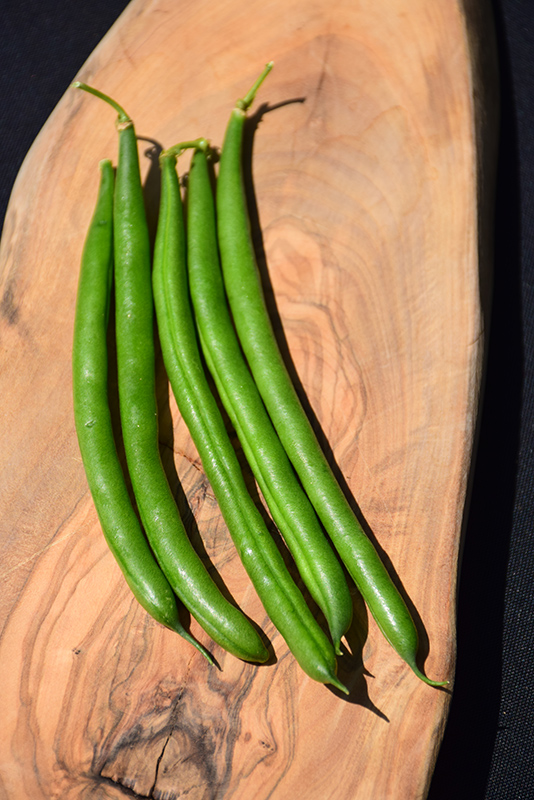Kentucky Blue Pole Bean
Phaseolus vulgaris 'Kentucky Blue Pole'
Height: 7 feet
Spacing: 12 inches
Sunlight:
![]()
Hardiness Zone: (annual)
Description:
A high yielding and fast growing variety; featuring slender deep green pods, reaching 8 inches long; continuous harvest throughout the entire season; superb performance in containers, and gardens; sweet and tender, perfect for salads, sautéing and canning
Edible Qualities
Kentucky Blue Pole Bean is an annual vegetable plant that is commonly grown for its edible qualities. It produces green long pods which can be harvested at any point. The pods have a sweet taste.
The pods are most often used in the following ways:
- Fresh Eating
- Eating When Cooked/Prepared
- Cooking
- Pickling
- Freezing
Planting & Growing
Kentucky Blue Pole Bean will grow to be about 7 feet tall at maturity, with a spread of 12 inches. When planted in rows, individual plants should be spaced approximately 12 inches apart. Because of its vigorous growth habit, it may require staking or supplemental support. This fast-growing vegetable plant is an annual, which means that it will grow for one season in your garden and then die after producing a crop.
This plant is typically grown in a designated vegetable garden. It should only be grown in full sunlight. It does best in average conditions that are neither too wet nor too dry, and is very intolerant of standing water. It is not particular as to soil pH, but grows best in rich soils. It is quite intolerant of urban pollution, therefore inner city or urban streetside plantings are best avoided. Consider applying a thick mulch around the root zone over the growing season to conserve soil moisture. This is a selected variety of a species not originally from North America, and it is considered by many to be an heirloom variety.
Kentucky Blue Pole Bean is a good choice for the vegetable garden, but it is also well-suited for use in outdoor pots and containers. With its upright habit of growth, it is best suited for use as a 'thriller' in the 'spiller-thriller-filler' container combination; plant it near the center of the pot, surrounded by smaller plants and those that spill over the edges. Note that when growing plants in outdoor containers and baskets, they may require more frequent waterings than they would in the yard or garden.

